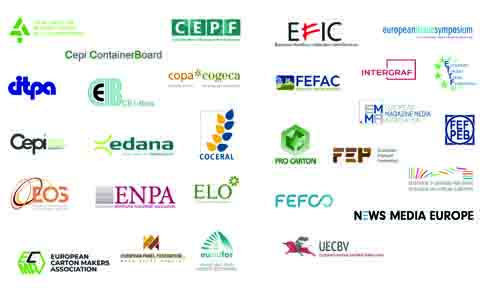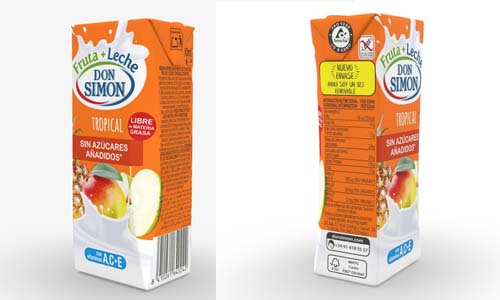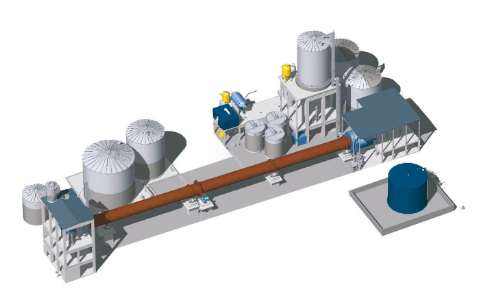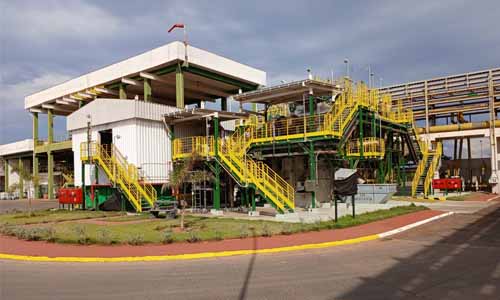
“The undersigned organisations, representing European primary producers and various industries in the scope of the EUDR fully support the goal of eradicating deforestation and forest degradation. We recognise the importance of global forests to combat climate change, preserve biodiversity, and secure sustainable raw materials and supply chains and our responsibility to preserve them.
Nevertheless, with less than 100 days remaining until the obligations for operators, traders, and Competent Authorities come into force, we are still grappling with severe legal and market uncertainties.
For months, operators and traders have voiced concerns about the EUDR’s practical feasibility and called on the European Commission and Member States to provide necessary clarification on both the regulation’s general requirements and commodity-specific issues. All supply chain actors need this clarity in order to adjust their practices in compliance with the EUDR but this adjustment cannot be achieved at the last minute. It is clear that the time for proper preparation is long overdue and our industries are requested to implement obligations in a shorter timeframe than was ever demanded of any other industrial sector facing comparable EU legislation.
Time for proper preparation of implementation is over
Despite our efforts to be prepared for the EUDR’s implementation and repeated warnings over the past year, we are still missing adequate responses to our calls for clarity for a workable, harmonised implementation of the regulation. Our concerns have gone unanswered, from the need for a functioning and user-friendly EU Information System to the readiness of benchmarking, especially for low-risk countries. In addition, seven Member States have still not designated a competent authority for national implementation.
The current situation clearly shows that implementing the EUDR by the end of 2024 is simply unfeasible and would result in many small businesses being wiped out of the market and job losses in rural areas. Already now, companies are facing paralysing uncertainties when negotiating contracts for next year. In consequence, serious market disruptions can be expected, which would severely harm European primary producers and downstream industries. This would threaten supply chain security, reduce market access to vital EU food, feed, and forest products as well as the livelihood of rural areas and exacerbate inflationary pressures for consumer goods.
In short, rushing the implementation would incur a high risk of severe adverse economic outcomes.
It is crucial that the European Commission and Members States acknowledge that the set timeline is simply not feasible. Therefore, we demand immediate action to delay the EUDR’s entry into force and that the necessary compliance tools are fully provided with sufficient time to prepare adequately.
Broad demand for rethinking EUDR implementation practicalities
In April 2024, EU Agriculture Ministers sent a strong call on the urgent need to address simplification and the disproportionate administrative burden revealed in the national implementation process. This was supported by the Commissioner for Agriculture who proposed not only to consider deferring the date(s) of application of the EUDR but also to swiftly examine simplification measures. This call was also supported by several MEPs.
Since then, the urgent need for simplification became even more evident following the EU election results and the declared aim at high political level (in the EU and its Member States) to reduce EU bureaucracy. On 12 September 2024, in an interview with the Financial Times, the head of the WTO, Mrs. Ngozi Okonjo-Iweala, called on the EU Commission to fundamentally rethink the EUDR. Therefore, once postponed, the provision of solutions required to move forward with the EUDR’s implementation should be made a top priority, while maintaining the objective of banning deforestation-related products from the EU market.
While we remain committed to collaborating on effective solutions for the EUDR, we urge the European Commission and Member States to recognise the gravity of our concerns and take a decision as soon as possible to delay the entry into application.“
Signatories:
ACE – The Alliance for Beverage Cartons and the Environment
CCB – Cepi ContainerBoard
CEI-Bois – European Confederation of Woodworking Industries
CEPF – Confederation of European Forest Owners
Cepi – Confederation of European Paper Industries
CITPA – International Confederation of Paper and Board Converters in Europe
COCERAL – European association of trade in cereals, oilseeds, rice, pulses, olive oil, oils and fats, animal feed and agrosupply
Copa-Cogeca – European Farmers and Agri-Cooperatives
ECMA – European Carton Makers Association
EDANA – Nonwovens Industry
EFIC – European Furniture Industries Confederation
EMMA – European Magazine Media Association
ENPA – European Newspaper Publishers’ Association
ELO – European Landowners’ Organization
EOS – European Organisation of the Sawmill Industry
EPF – European Panel Federation
ETTF – European Timber Trade Federation
ETS – European Tissue Symposium
EUSTAFOR – European State Forest Association
FEFAC – Euroepan Feed Manufacturers’ Federation
FEFCO – European Federation of Corrugated Board Manufacturers
FEP – European Parquet Federation
FEP – Federation of European Publishers
FEFPEB – European Federation of Wooden Pallet and Packaging Manufacturers
INTERGRAF – European Federation for Print and Digital Communication
NME – News Media Europe
PRO Carton – European Association of Carton and Cartonboard manufacturer
UECBV – European Livestock and Meat Trading Union

































